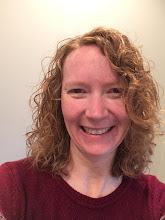So there is a lot of hype out there about the value or detriment of ebooks. And there are as many conflicting views as there are people.
There are some who say that ebooks will destroy the publishing industry because it will prevent customers from entering bookstores and not every book is available as an ebook. (Stephen King has even taken this approach in his decision to delay the ebook edition of his new novel to help generate traffic into bookstores - because of course, he holds all power. Okay, okay, so he does.) You also have to consider that although the ebook price is generally lower, there are still many of the same costs - editing, the author's cut, the agent's cut, formatting, etc., etc. The only real difference in costs are the physical published pages. But consumers generally only see the published pages - which an ebook lacks - so they believe that an ebook price should be significantly cheaper. And when the publishing industry is only make 3% - 5% profit (ridiculously low when compared to every other industry), they just can't afford to drop their prices.
There are others who say ebooks will save the industry because the convenience of the Kindle (and its other oddly-named competitors) will replace multiple books. And with the rest of the world going digital, it was only a matter of time before mainstream books did so as well. Many people think that ebooks increase readership because it actually pulls in new customers; a physical book purchaser is not going to buy the e-version, and vice versa. Meaning that ebooks are only going to boost the sales, not reduce the sales. At the very least, others think that ebooks will be the "in" thing for a few years, then it will lose its popularity and decrease in use.
I don't really know what I think. I don't personally like ebooks, but I think that is mostly because I'm a physical-book type of person. I'm contemplating the aspect of two different consumers because it kind of seems to make sense (but I haven't totally decided yet). I would never buy an ebook because I can't really curl up with a hunk of plastic. But my husband, who reads voraciously on the internet but can't stand to finish a novel, is thrilled with the idea.
Perhaps the answer is to offer both formats with maybe an extra perk in one or the other format to increase sales that direction.
What do you think?
There are some who say that ebooks will destroy the publishing industry because it will prevent customers from entering bookstores and not every book is available as an ebook. (Stephen King has even taken this approach in his decision to delay the ebook edition of his new novel to help generate traffic into bookstores - because of course, he holds all power. Okay, okay, so he does.) You also have to consider that although the ebook price is generally lower, there are still many of the same costs - editing, the author's cut, the agent's cut, formatting, etc., etc. The only real difference in costs are the physical published pages. But consumers generally only see the published pages - which an ebook lacks - so they believe that an ebook price should be significantly cheaper. And when the publishing industry is only make 3% - 5% profit (ridiculously low when compared to every other industry), they just can't afford to drop their prices.
There are others who say ebooks will save the industry because the convenience of the Kindle (and its other oddly-named competitors) will replace multiple books. And with the rest of the world going digital, it was only a matter of time before mainstream books did so as well. Many people think that ebooks increase readership because it actually pulls in new customers; a physical book purchaser is not going to buy the e-version, and vice versa. Meaning that ebooks are only going to boost the sales, not reduce the sales. At the very least, others think that ebooks will be the "in" thing for a few years, then it will lose its popularity and decrease in use.
I don't really know what I think. I don't personally like ebooks, but I think that is mostly because I'm a physical-book type of person. I'm contemplating the aspect of two different consumers because it kind of seems to make sense (but I haven't totally decided yet). I would never buy an ebook because I can't really curl up with a hunk of plastic. But my husband, who reads voraciously on the internet but can't stand to finish a novel, is thrilled with the idea.
Perhaps the answer is to offer both formats with maybe an extra perk in one or the other format to increase sales that direction.
What do you think?

Another group to think about is those who will never pick up either, but will listen to the book in mp3 format. Even the school book order clubs are starting to offer many of their books in that format.
ReplyDeleteI think Mrs. R's comment is a valid one. People travel so much to and from work; to and from their kids games and performances; to and from vacations that an audio book is a must. If you are patient with the learning curve, are an adventurer at heart and have a couple hundred dollars to work with, you can create your own. Not only is it cheaper, it's a scream to do it!
ReplyDeleteAll formats are good to have. Not everyone will be willing to fork out $300 for a Kindle to read their books on and there are still many, many who prefer to curl up in a quiet place and enjoy the escape a good book provides.